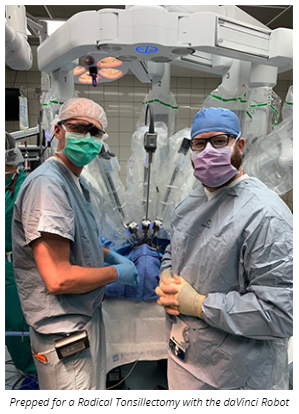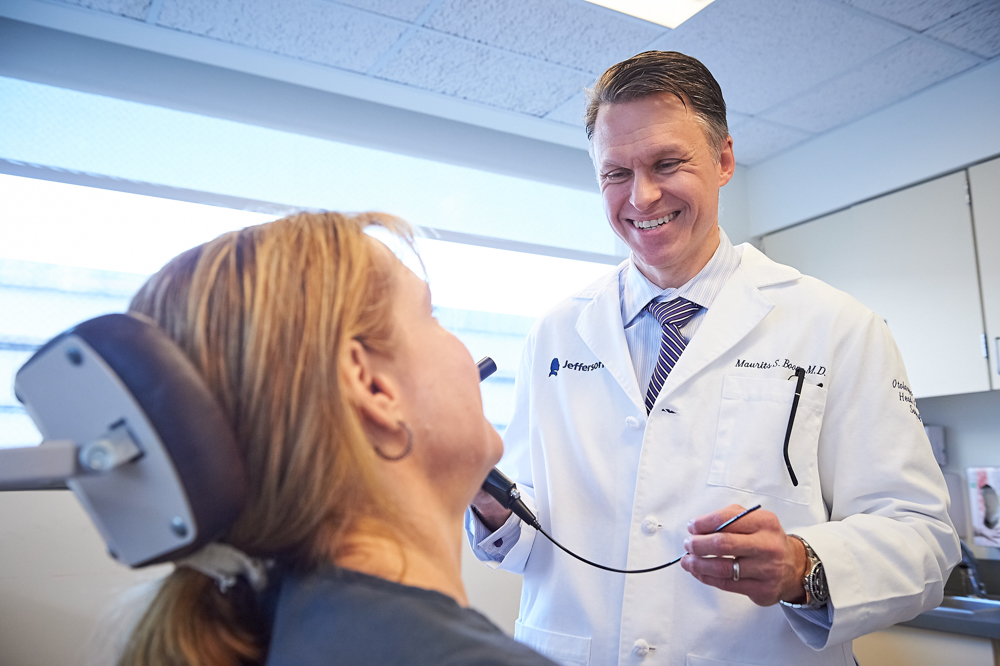Top Reasons to Schedule a Visit With an ENT for Chronic Health Concerns
Top Reasons to Schedule a Visit With an ENT for Chronic Health Concerns
Blog Article
Discovering the Area of Otolaryngology: What to Expect When You Speak With an ENT
Otolaryngology, generally referred to as ENT, encompasses the medical diagnosis and therapy of throat, ear, and nose problems. For those experiencing related issues, consulting an ENT professional can supply quality and relief. Understanding what to anticipate during such assessments is important for efficient interaction and care. This overview will certainly describe vital facets of the ENT experience, consisting of common factors for sees and the processes included in diagnosis and therapy.

Recognizing Otolaryngology: A Review
Otolaryngology, typically described as ENT (Throat, ear, and nose) medicine, is a specialized branch of medicine that concentrates on the diagnosis and treatment of problems impacting these essential locations of the body. This field includes a variety of conditions, consisting of those associated to hearing, equilibrium, respiratory system feature, and speech. Otolaryngologists are educated to manage both clinical and medical treatments, using sophisticated strategies and modern technologies. Their competence prolongs beyond traditional ailments, attending to problems such as allergies, sinus infections, and hearing loss. Furthermore, they play a crucial duty in the monitoring of head and neck cancers cells, offering comprehensive treatment customized to specific patient needs. In general, otolaryngology continues to be crucial for preserving health and wellness and top quality of life in damaged individuals.
Usual Factors to See an ENT Professional
Several individuals seek the know-how of an ENT professional for a selection of factors, showing the varied nature of problems that affect the nose, ear, and throat. Usual issues consist of chronic sinus problems, which typically leads to relentless nasal congestion and face discomfort. Allergic reactions and their associated symptoms, such as itching and sneezing, also prompt sees to these specialists (Sinus). Hearing loss, whether gradual or abrupt, is another significant reason for appointment. In enhancement, individuals may seek evaluation for throat problems, consisting of relentless hoarseness or swallowing troubles. Sleep apnea, defined by disrupted breathing throughout sleep, is often attended to by ENT experts. Each of these conditions highlights the value of specialized care in taking care of complicated ENT-related wellness problems
Preparing for Your ENT Appointment
When preparing for an ENT visit, it is necessary to collect pertinent details and think about any kind of certain worries. Patients ought to compile an in-depth clinical history, consisting of previous ear, nose, or throat issues, surgical procedures, and current medications. Documenting symptoms-- such as regularity, period, and seriousness-- can supply valuable understandings for the ENT expert. Additionally, people must prepare a checklist of inquiries they want to ask, making sure that all issues are addressed during the check out. Bringing along any type of appropriate clinical documents or examination results can even more assist the ENT in comprehending the patient's condition. Ultimately, patients should validate their appointment details, consisting of place, day, and time, to lessen any type of final confusion. Appropriate prep work can improve the efficiency of the appointment and cause better results.
What to Anticipate Throughout the Appointment
As the consultation starts, the individual can expect to take part in a comprehensive conversation with the ENT expert regarding their symptoms and clinical background. The expert will make inquiries about the duration, frequency, and seriousness of signs and symptoms such as hearing loss, nasal congestion, or sore throat. Additionally, the client's previous medical conditions, drugs, and any appropriate household background will certainly be evaluated, aiding the professional in forming a total understanding of the person's health and wellness. The ENT may likewise ask concerning lifestyle aspects, such as direct exposure to irritants or irritants. This open discussion develops a structure for the consultation, making certain that the patient's worries are resolved and establishing the phase for any type of needed evaluations or referrals for therapy.
Analysis Examinations and Treatments in Otolaryngology
A series of analysis tests and procedures are important in otolaryngology to accurately evaluate and diagnose problems impacting the nose, ear, and throat. Typical examinations consist of audiometry, which determines hearing feature, and tympanometry, assessing middle ear pressure. Nasal endoscopy enables visualization of the nasal passages and sinuses, while laryngoscopy checks out the throat and vocal cords. Imaging methods, such as CT scans and MRIs, provide detailed sights of head and neck structures. Allergy screening might also be carried out to identify triggers for sinus or respiratory concerns. These analysis tools enable ENT specialists to establish a complete understanding of individuals' problems, ensuring tailored and efficient administration strategies. Appropriate diagnosis is vital for effective treatment outcomes in otolaryngology.
Treatment Options Used by ENT Specialists
ENT professionals use a variety of treatment alternatives tailored to address particular conditions influencing the nose, throat, and ear. These treatments vary from conservative strategies, such as drug and way of life adjustments, to more intrusive procedures. For example, allergies may be taken care of with antihistamines or immunotherapy, while chronic sinus problems could call for nasal corticosteroids or sinus surgical procedure. For hearing loss, ENT specialists often suggest listening devices or surgical treatments like cochlear implants. In situations of throat problems, choices can consist of speech treatment or operations to eliminate obstructions. In addition, they might supply guidance for taking care of sleep apnea, including the use of CPAP gadgets or surgical treatments. On the whole, the goal is to improve patients' quality of life via individualized care and effective therapy techniques.
When to Seek Follow-Up Treatment With an ENT
Acknowledging when to seek follow-up care with an ENT specialist is essential for taking care of ongoing symptoms or difficulties associated to nose, throat, and ear conditions. Patients ought to consider scheduling a follow-up consultation if symptoms persist in spite of first therapy, such as chronic ear discomfort, nasal congestion, or throat pain. Adjustments in hearing, balance concerns, or unusual nasal discharge might likewise warrant further analysis. Furthermore, if an individual experiences adverse effects from prescribed drugs or has undergone a procedure, follow-up care is necessary to keep track of recuperation and address any kind of worries. Timely appointments can ensure efficient administration of problems, avoid possible issues, and offer tranquility of mind relating to one's wellness. Seeking follow-up treatment advertises positive wellness monitoring in otolaryngology.
Frequently Asked Concerns

What Certifications Should I Seek in an ENT Specialist?
When seeking an ENT specialist, one should look for board accreditation, pertinent experience, and solid client testimonials. Additionally, efficient communication skills and a thoughtful approach can considerably enhance the overall treatment experience.
Just how Do I Select the Right ENT for My Requirements?
Choosing the ideal ENT expert includes reviewing their qualifications, experience, and client testimonials (Otolaryngology). It is necessary to consider their communication style and technique to therapy, ensuring they straighten with the individual's particular health and wellness requirements and preferences
Exist Any Kind Of Threats Related To ENT Procedures?
The dangers related to ENT procedures might consist of infection, bleeding, anesthesia issues, and possible damage to surrounding structures. Clients must talk about these dangers with their medical professional to recognize specific worries and assurance notified choices.
Just How Can I Manage Anxiety Before My ENT Visit?
To manage anxiety before a visit, individuals can exercise deep breathing exercises, picture favorable end results, prepare concerns beforehand, and seek support from good friends or family members, cultivating a sense of confidence and calmness.
What Should I Do if I Experience Negative Effects From Treatment?
If negative effects from treatment take place, the individual must immediately report them to their health care provider. Changes to treatment or extra interventions may be essential to ensure safety and performance in website managing their problem - ENT surgery. As the appointment begins, the patient can anticipate to involve in a comprehensive discussion with the ENT professional about their signs and clinical history. These diagnostic devices enable ENT experts to develop a detailed understanding of patients' conditions, making certain tailored and efficient monitoring strategies. ENT professionals offer a selection of treatment alternatives customized to deal with particular problems impacting the throat, nose, and ear. When looking for an ENT expert, one need to look for board certification, relevant experience, and strong client reviews. Choosing the appropriate ENT professional includes reviewing their credentials, experience, and client evaluations
Report this page